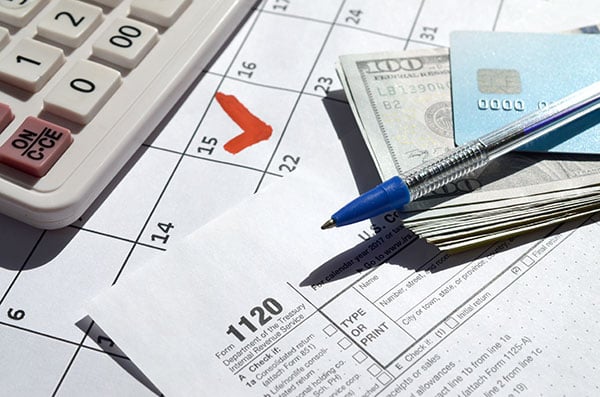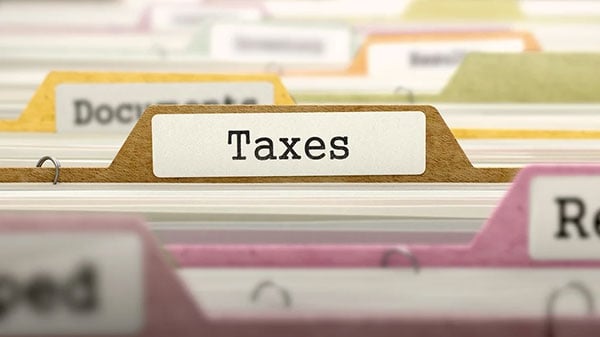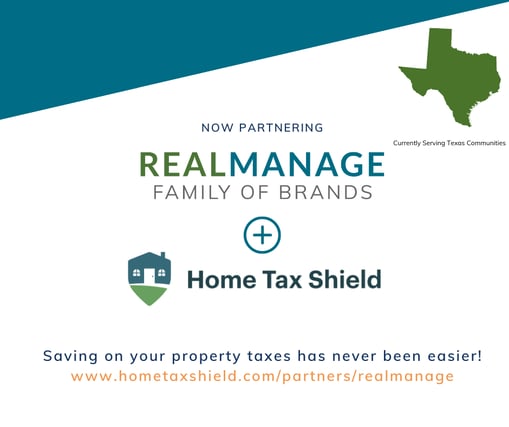Are you an HOA board member who's struggling with your association's tax return? Filing an HOA or condo association tax return can be challenging if you've never done it before or don't understand the rules or what's involved in the process. Maybe you didn't even realize that your association is required to file a special tax return.
The Internal Revenue Service (IRS) considers a community association to be a corporation, even if it's a non-profit organization which means that there are some very specific tax documents that need to be filed. Here are some basic guidelines for HOA tax returns, along with some considerations and warnings.
A Choice of Two Tax Forms
Community associations are generally required to file either the 1120-H (1102-H instructions) or the 1120 Corporation Income Tax Return form. While Form 1120 is the standard form for traditional corporations, Form 1120-H was designed specifically for community associations.
It's important to note that even if you filed an 1120 form in previous years, you may still be able to file the 1120-H for your community association as the forms are not mutually exclusive. While the 1120-H was specifically designed for community associations like a traditional HOA, certain community associations may not have the same types of exemptions and so the 1120 can be a better alternative. If you are confused about which would be best, we encourage you to speak to a CPA or your community management team to help navigate the sometimes complicated tax laws.
Exempt vs. Non-exempt Income
Community associations have two kinds of income: exempt function income and non-exempt function income. These are treated differently for tax purposes so it's important to know which of these your communities funds fall into.
Exempt function income is revenue that comes from association property, including income derived from membership dues, association fees and assessments.
Non-exempt income is income earned from an association providing services to either their members or the general public. Examples are income that's generated from vending machines, laundry, clubhouse rentals, swimming pools, tennis courts and rents from non-members who use the facilities. This income is usually taxable, though there are some very specific exclusions that should be addressed with a tax professional.
Tax Exemption and Community Associations
For tax reporting purposes, community associations are treated as corporations by the federal government. This is true even if the association was originally created as a nonprofit in its home state. There are exceptions to this rule. A community association can officially file to be recognized as a nonprofit, tax-exempt organization by the Internal Revenue Service (IRS).
Many community associations do not file IRS form 1024 (under tax code section501(c)(4)) for this recognition because the process can be expensive and such recognition can be difficult to obtain. It's also important to note that even those HOAs which achieve tax-exempt recognition are still required to file a tax return.
Form 1120
As corporations, community associations had previously been required to file Form 1120, the U.S. Corporation Income Tax Return. This form is not popular with associations for several reasons. First, filing the form can be onerous, requiring a great deal of information.
Providing this level of detail means associations must be relatively sophisticated in the way they keep their books. Second, this reporting requirement means that any income which isn’t spent, but rather held in reserve funds, becomes taxable for that year. Finally, Form 1120 usually means that the treasurer must make estimated tax payments, further complicating his or her work.
Form 1120-H and it's Benefits
Some HOAs can avoid filing Form 1120 by utilizing section 528 of the tax code. This gives community associations the ability to bypass 1120 and instead file the much simpler Form 1120-H. That form is just one page, this compared to the multi-paged 1120, and does not require completing 1120’s several schedules.
To qualify for Form 1120-H, an association must first satisfy certain requirements. For example, a minimum of 60% of the HOA’s annual income must be so-called “exempt-function income”—this includes income from sources like annual membership dues, assessments, fees and interest on fees. In addition, at least 90% of expenditures must be for maintenance, management and construction of association property.
A significant advantage of qualifying for Form 1120-H is that it means paying taxes only on “non-exempt income.” Qualifying associations can deduct any income directly related to the generation of this non-exempt income, but must have records that adequately support those deductions. To calculate the amount of their tax, associations that use 1120-H can deduct $100 from their non-exempt income, with the remainder subject to a flat tax of 30%.
1120-H Extension Filing
Sometimes, community associations fail to meet the filing deadline for various reasons. often communities may have trouble recognizing whether income is exempt or non-exempt as well as not understanding exactly how Form 1120-H differs from Form 1120. Sometimes, failing to meet the tax deadline is due to bookkeeping problems. When community associations don't meet the filing deadline, they can file for an extension by filing Form 7004 before the filing deadline.
The extension period is for six months. Failing to pay the total tax that's due by the due date can result in penalties of ½ of one percent each month, along with interest at the applicable federal rate.
Other Considerations and Warnings
- It's critical you understand the unique laws for filing a tax return. The tax rules and requirements for filing Form 1120-h are found under IRS Section 528.
- Separate your exempt expenses from your non-exempt expenses.
- List expenses for costs, such as for cleaning, maintenance and advertising even though these items go on the non-exempt part of a tax return form.
- Keep close tab on all your finances throughout the year because this makes it not only easier for you but also helps your CPA.
- Because tax returns require specialized skills and knowledge, it's best to hire a financial manager if you don't think you're qualified to do the job.
Conclusion
Understanding the tax reporting requirements of your association can be complicated, but it’s important work. Fortunately, an experienced HOA management company like RealManage can help provide helpful resources.
How much your association is required to pay in federal taxes directly impacts the amount of money it has on hand for other purposes. For that reason, associates, as part of their due diligence and responsibility to their members, should fully familiarize themselves with IRS tax reporting rules and seek a solution which provides the greatest benefits for their individual circumstances.





